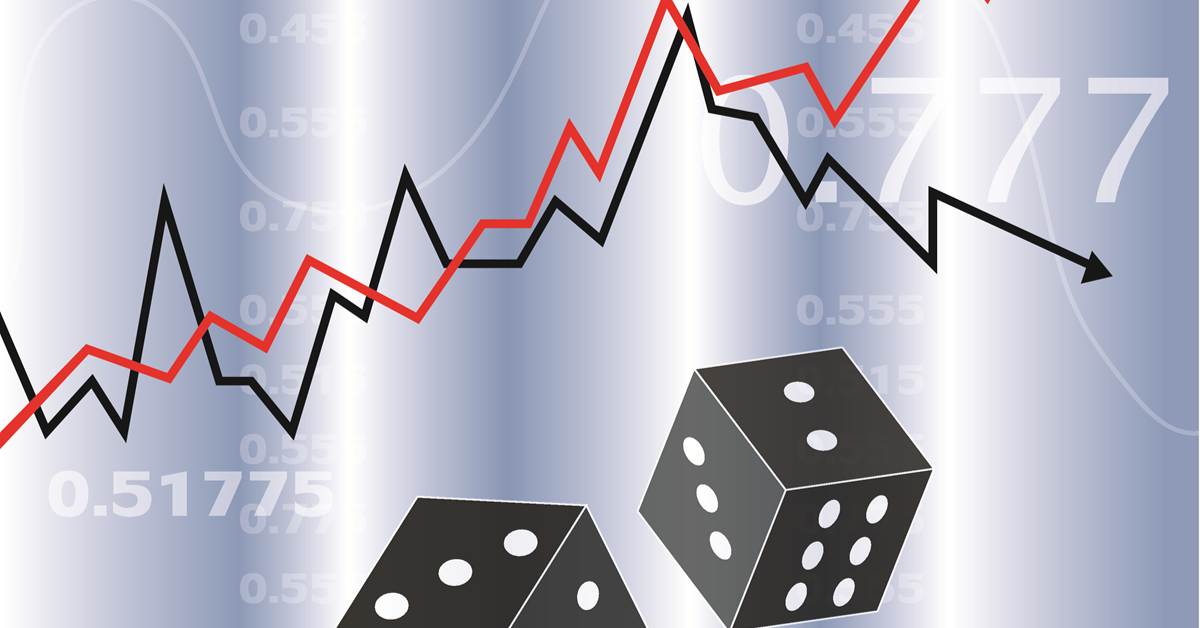
By Jay Maniar
One of the most frequently asked questions by those who do not understand trading in the stock market is “whether day trading is gambling?” A short and simple answer to this question would be a “NO!”. In fact, I would even go and say that gambling is also not gambling if done correctly. It is a game of being disciplined and not losing your focus. It is about how much you can read a particular situation correctly and your ability to absorb the pressure. Many apparent “high rollers” have made this their profession and are pretty successful. But this blog is not to promote gambling since it is seen as a highly risky and addictive habit. Gambling is perceived as a societal taboo and it is even illegal in some countries. But there are always lessons to be learned without burning your own hands.
1. Only Trade what you know.…
Alan Woods sits in his penthouse apartment in Hong Kong watching computer screens. Numbers roll by as he taps at the keyboard. Across the room another screen blinks with the latest Bloomberg quotes for the American stock market. The stock market is where he does his “gambling”. He makes his living via a reliable job – Horse Racing. He rarely ventures out of his apartment. His life resembles that of an accountant or computer programmer. But he is a professional Gambler. (Excerpt from Gambling Wizards by Richard Munchkin)
Alan Woods is a horse racer who has made computer programs to beat the bookies. He has developed programs by which horses, races, jockeys, and tracks are mere parameters for calculating statistical probabilities. For profession, he bets on horses and for hobby, well, he bets on other horses!
For traders, it is important to know – The Stock Market as a whole. Which are the different financial products that can be traded in the market? Day traders generally trade in equities, stock futures, stock options, index futures and index options. Firstly, know the product which you want to trade in the market. Further, understand the key factors that are involved in the pricing of the product. You should know how a product is priced because this will help you to understand whether the product is fairly priced, overpriced or underpriced. Know your technical indicators and how to read technical price charts. Devise your strategy to trade. Know your entry and exit points. Read the financial news. Know things. If you don’t understand something then ASK – Always Seek Knowledge.
Knowing things will make you comfortable with what you are doing, what you can do, what you should do, what you cannot do and what you should not do. Please do not read further if you haven’t understood that these are 5 “whats” are completely different from one another.
2. A Disciplined mind minus the emotions…
Cathy Hulbert: Before I go to play, I don’t engage in any other activity. I don’t take phone calls. I don’t socialize. I don’t plan any social event afterward. I don’t want any time restrictions. I want my mind to stay as peaceful and restful as possible. I go to bed at exactly the same time every night and get up at exactly the same time every morning. I don’t drink any alcohol the night before I’m going to play. When I’m driving to the casino, I’m very aware of how irritated I am at other drivers. The calmer I am, the better I know I’ll do. (Excerpt from Gambling Wizards by Richard Munchkin)
That is the state of mind of Cathy “Cat” Hulbert, a professional poker and blackjack player. Game show network called her – “The best female gambler on earth” and she features on BBCs 100 women list. She has retired from gambling and now works as an online casino consultant.
Having a calm and disciplined mindset is somewhat underrated in stock market trading, thanks to the Hollywood flicks which show traders high on success after trading on impulse. But trading on impulse won’t work much in the market for you if this is what you are going to do in all the 250 trading sessions of the year. Hence after knowing things, one should know how to handle things. Your mind should be capable of absorbing all the information you know (your homework) and applying it during a buy or sell (your bacon). Don’t be greedy or fearful and just stick to your strategy.
There is a Chinese proverb - If you must play, decide upon three things at the start: the rules of the game, the stakes, and the quitting time. If your day trading strategy tells you to book profits at 1% after an increase in price, within a trading session, then do it. Do not be greedy. You may miss the rally after that 1% but if you look at it, in the long run, it will help you book greater profits after 250 sessions by being disciplined. Always put a stoploss and exit if the prices are going the other way.
Remember you are not the gambler who has walked in the Las Vegas casino just today and is expecting to win the jackpot. A rookie or a tourist does that. You are “The Pro”. All you need is your payoff for the day because tomorrow you are again going to walk in that same casino and play the same game to win again. Knowing when to exit is very important and irrespective of whether you are winning or losing. A calm, disciplined state of mind will help you achieve this.
There are behavioral biases a trader may fall for. “Gamblers Fallacy” is the state of mind which tends to accept favorable outcomes after a series of bad outcomes. For example, if you bet on a flip of a coin, you have a 50% chance of winning that bet if head appears. Hence you place your first bet of $50. The coin is flipped and it is tails. You lose $50. Now you think that you have a greater chance to win the bet if you bid on head in this second flip, since the previous outcome was tails. You bet $100 to recover the $50 you lost and win another $50. It is again tails. You lose. Now you are more confident that you have a definite more than 50% chance of winning the next one if you bet on head since previous two outcomes are tails. Hence you place a bet of $150. What you are not realizing is that the chance of winning in the next flip is independent of the previous flip. There is always going to be an exact 50% chance of winning in any of the flips since it is not dependent on the previous flip of a coin.
Hence it is not necessary that a stock which goes up like a star will always come down or a stock which goes down like a fallen angel will always rise. It is also not necessary that three consecutive sessions of loss in day trading will ensure you a profitable fourth session. Opposite of this is the “Hot Hand Fallacy” which states that a couple of consecutive profitable trading session will not ensure you third profitable trading session. Hence do not succumb to greed and trade without knowing your probabilities.
We will continue this blog and provide a sequel to it. Do let us know if at all you find this one interesting. In this blog, we have discussed what needs to be done before trading and mental aspect while trading. Do let us know what you feel and what more would you like to hear from us.
Cheers!
Next Steps
You can learn some great trading strategies on Quantra. Quantra by QuantInsti® specializes in self-paced online courses in Algorithmic and Quantitative Trading. With state of the art AI learning techniques, Quantra offers highly interactive exercises that help boost the understanding of complex concepts in trading. Do check out the courses here.


